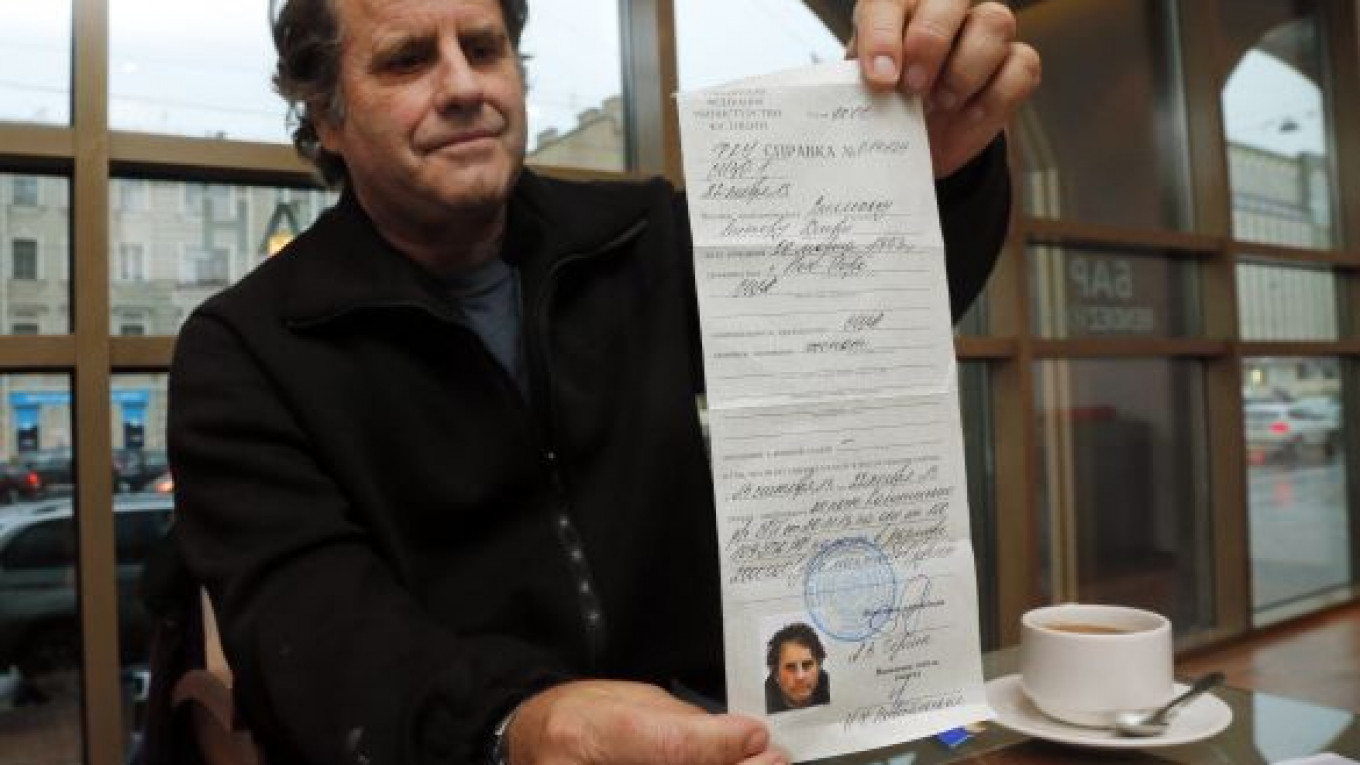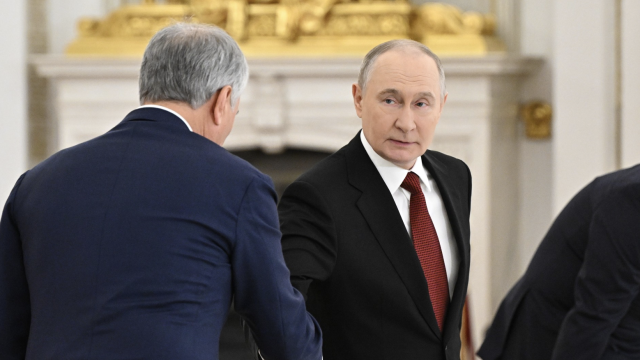ST. PETERSBURG — The U.S. captain of the Greenpeace ship seized by the Russian coast guard described in an interview the stress and fear that he and the other 29 people on board felt when they were thrown into Russian jails, with no idea when they would get out.
Most of them were released on bail last week after spending two months behind bars, and all were expected to be free soon.
"The hardest thing was the uncertainty, the anxiety, the damn fear," said Peter Willcox, a veteran Greenpeace activist who was the ship's captain. "Everybody lost weight during the first three weeks, and not because of food, but because of stress."
They were initially charged with piracy for protesting at a Russian oil platform in Arctic waters and if convicted were looking at up to 15 years in prison.
"That changes my life, that changes anybody's life," said Willcox, who is 60. If he received that sentence, he imagined, "I will not see my mother and father again, they are not going to live another 10 or 15 years. My children will be grown up with children of their own."
Investigators have since said they no longer consider the protest to have been piracy, but all 30 still face charges of hooliganism, which could send them to prison for up to seven years.
Greenpeace lawyers are optimistic that the foreigners will be able to leave Russia pending trial, but there has been no indication of how soon this could happen. Four of those arrested are Russian citizens, while the rest come from 17 other countries.
The Russian coast guard seized the Greenpeace ship, the Arctic Sunrise, the day after the protest when it was in the high seas and already more than 30 kilometers away from the offshore platform, Willcox said.
"We were completely surprised when we were approached by a helicopter. Men wearing masks came out on a rope with machine guns and pushed all of the crew away and took control over the ship," he said. The captain said he spent the next four days locked in his cabin as the ship was towed to Murmansk, a Russian port above the Arctic Circle.
Dima Litvinov, an activist on board, said the Russian commandos smashed the ship's radio equipment and immediately confiscated all computers, cameras and telephones. They also took all the alcohol they found in the cabins, he said.
"The next day they just stank of alcohol," said Litvinov, 51.
For Willcox, the time in jail was even more difficult because he suffers from claustrophobia.
"The cell door slams and you can hear the echo of the door going up and down the hallway," he said. "Then you hear clang, clang, clang. And you're in there. Then your cellmate starts smoking and I feel my heart beating hard."
Willcox said he fought the claustrophobia by imagining himself working on a small sailboat that he has at home.
Even so, he said his experience in Russia has not been the worst of his 40-year career with Greenpeace. Willcox was the captain of the Rainbow Warrior when it was blown up in 1985 by the French special services, killing one of his shipmates.
And in many ways the mission has been worth it, he said.
"Look at how many more people in the world are aware of the drilling in the Arctic now as opposed to two months ago," Willcox said.
A Message from The Moscow Times:
Dear readers,
We are facing unprecedented challenges. Russia's Prosecutor General's Office has designated The Moscow Times as an "undesirable" organization, criminalizing our work and putting our staff at risk of prosecution. This follows our earlier unjust labeling as a "foreign agent."
These actions are direct attempts to silence independent journalism in Russia. The authorities claim our work "discredits the decisions of the Russian leadership." We see things differently: we strive to provide accurate, unbiased reporting on Russia.
We, the journalists of The Moscow Times, refuse to be silenced. But to continue our work, we need your help.
Your support, no matter how small, makes a world of difference. If you can, please support us monthly starting from just $2. It's quick to set up, and every contribution makes a significant impact.
By supporting The Moscow Times, you're defending open, independent journalism in the face of repression. Thank you for standing with us.
Remind me later.






